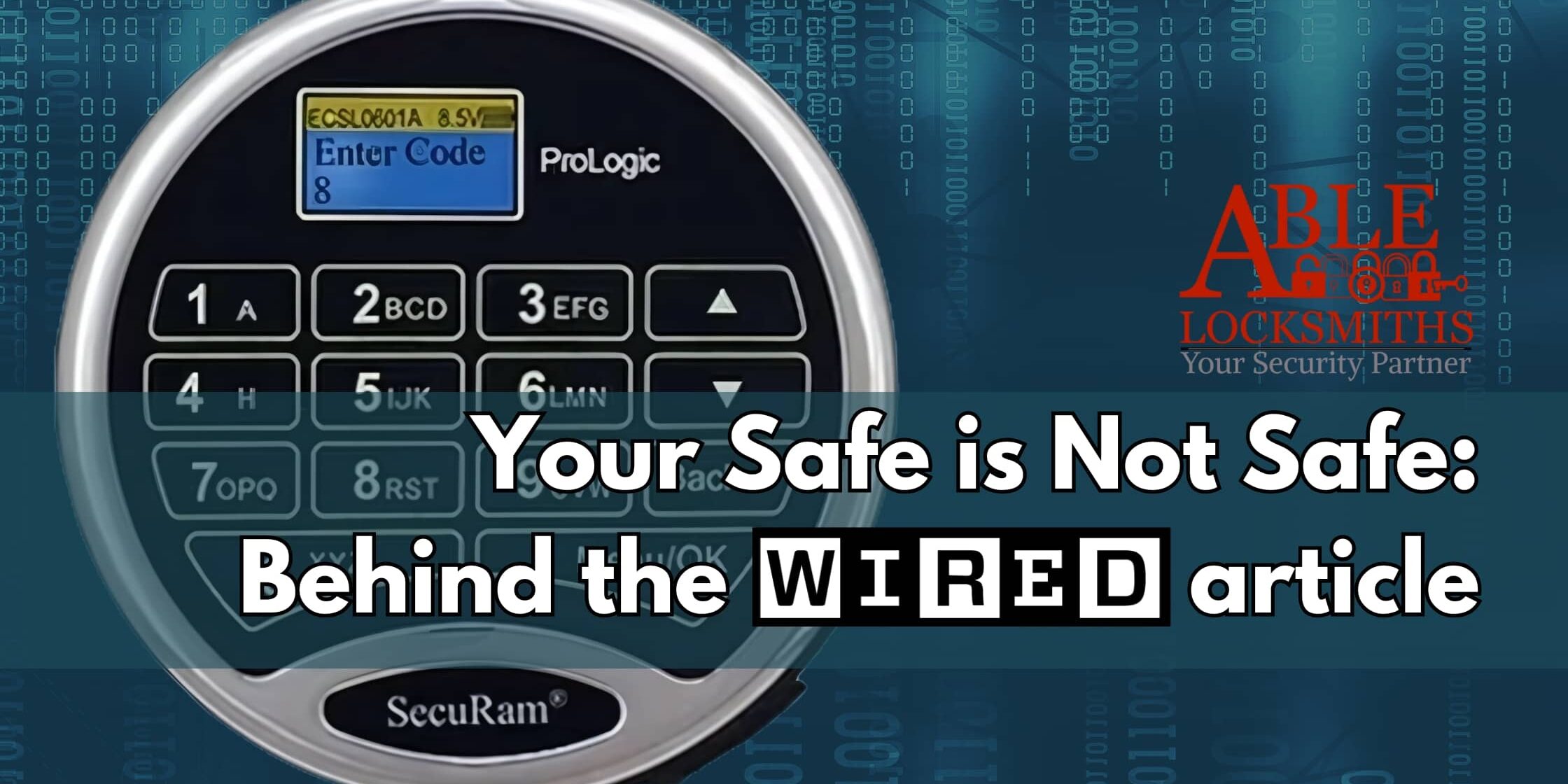How do you know if you safe is not safe?
Recently, WIRED magazine published an article about vulnerabilities in electronic safe locks, specifically the Securam ProLogic series. The piece highlighted research showing that certain backdoor functions, originally intended for locksmiths and manufacturers, could be exploited by hackers to open safes in seconds.
Understandably, this type of news creates concern. After all, safes are supposed to represent the last line of defense between your valuables and the outside world. If you’ve read the article, you might be wondering: Is my safe secure? Should I be worried?
The short answer is: all safes have vulnerabilities — but the real question is whether you have a trusted professional who knows how to handle them.
A Tradition Rooted in Trust: The Locksmith’s Guild Mentality
For centuries, locksmiths and safe technicians have approached their work with a mindset similar to the old guilds of Europe. Guilds were professional organizations where knowledge of a trade was carefully controlled and passed down only to apprentices who proved themselves trustworthy.
Why? Because when your business is securing people’s most valuable possessions, knowledge is power. A locksmith had to be skilled enough to open a safe when the rightful owner lost access — but also ethical enough never to use that knowledge improperly.
That tradition still matters today. Organizations like ALOA Security Professionals Association, Inc. and Safe & Vault Technicians Association (SAVTA)–both of which Able technicians have membership within–carry on this guild-like role, ensuring that safecracking knowledge stays in the hands of trained, certified professionals. It’s the reason why locksmiths have historically been cautious about how much we share with the public.
What the WIRED Article Gets Right (and What It Misses)
The article correctly points out that certain electronic locks, including Securam ProLogic models, have reset or recovery features that can be misused if someone reverse-engineers them. But this isn’t a brand-new revelation — every lock, whether mechanical or electronic, has a weakness.
Here’s what the article doesn’t emphasize:
- These vulnerabilities require specialized knowledge and access. They’re not something an untrained person can easily exploit.
- Not all locks are affected. Many electronic and mechanical safe locks remain extremely reliable and secure.
- Professional locksmiths already use tools and methods that look similar to these “hacks” — but only for legitimate purposes, such as helping a customer recover access to their safe.
In other words: this isn’t the end of the safe industry. It’s simply a reminder that security is a balance, not a guarantee.
Why You Can Trust Able Locksmiths
At Able Locksmiths, we’ve been opening, repairing, and installing safes for decades. Between our team, we’ve opened thousands of safes — from gun safes in homes to high-security safes in pharmacies and government facilities.
We are certified in multiple Securam locks, along with many other safe lock systems. That means we don’t just know how these locks work — we know how to service them properly, ethically, and legally.
When a story like this makes headlines, our customers don’t need fear. They need solutions. And that’s exactly what we provide.
Our Message to Safe Owners
- If you own a safe with a Securam ProLogic lock, don’t panic. It’s still a secure product for the vast majority of real-world threats.
- If you’re concerned, we can inspect your lock and discuss options — including upgrades or replacements.
- If you prefer, we can recommend and install mechanical locks, which don’t carry the same electronic risks.
- Most importantly: when you trust Able Locksmiths, you’re trusting a team that has the training, certifications, and experience to handle any safe issue, from forgotten codes to failed electronics.
Closing Note
Safe security has always depended on two things: the quality of the lock and the integrity of the locksmith. We take that responsibility seriously.
At Able Locksmiths, your security is our mission. We’ve built our reputation on opening safes when no one else can — and on giving our customers peace of mind that their valuables are protected.
Want to know if your safe is not safe? For a personalized consultation from certified security professionals, call 301-662-7275.
Want to read the WIRED Article?

